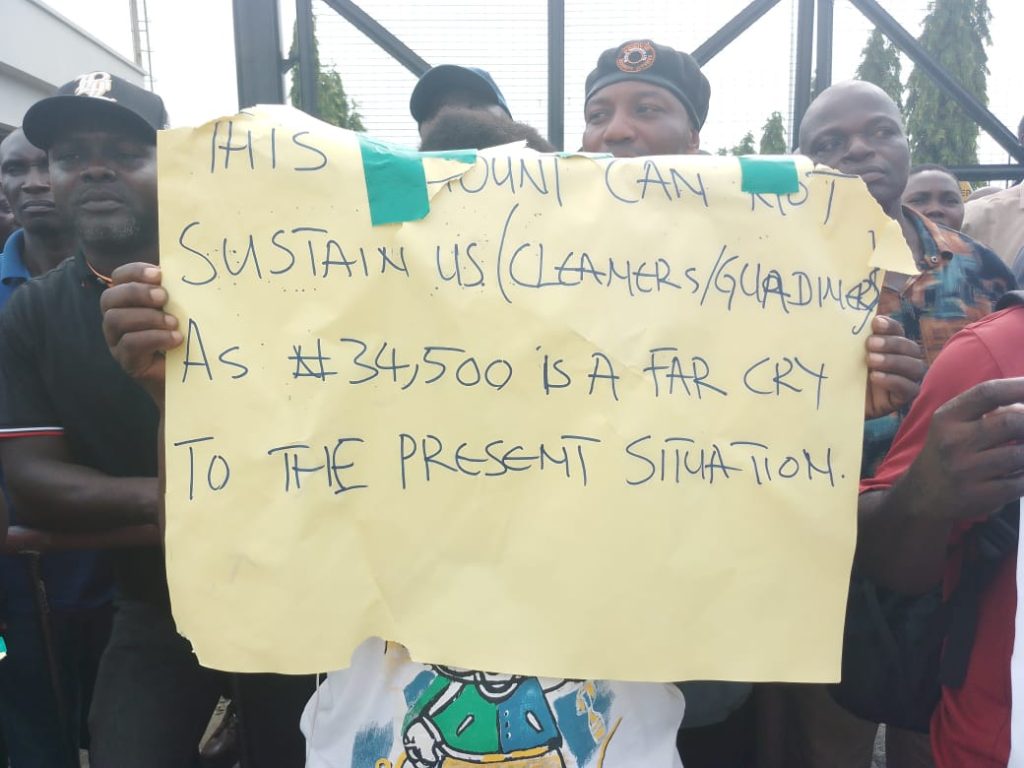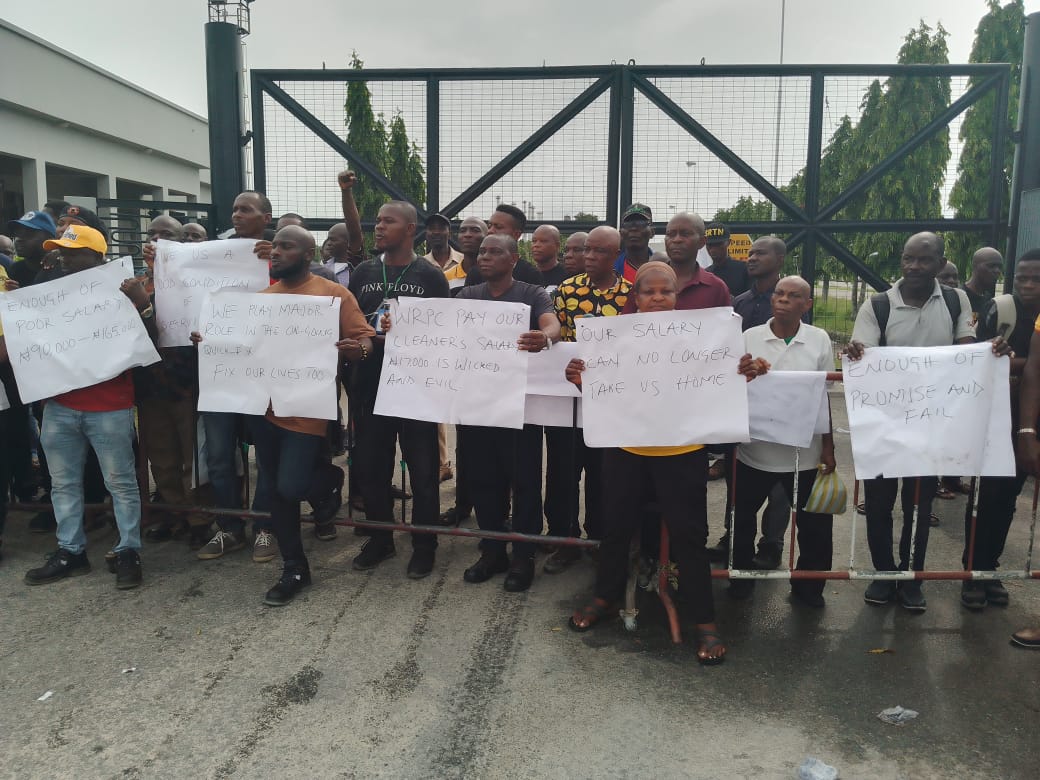By Meluwa Kelvin, Asaba
DELTA: Operations at the Warri Refining and Petrochemical Company (WRPC) in Delta State came to a halt on Monday as hundreds of protesting support staff blocked access to the facility, accusing the management of exploitation and broken promises.
Chanting solidarity songs and wielding placards, the workers who constitute a large majority of the company’s workforce, shut down the refinery’s activities in protest over poor remuneration and welfare.
Their placards bore stark messages such as “Our salary can no longer take us home,” “WRPC paying our cleaners N34,500 is wicked and evil,” and “We played major role in the Quick-Fix, give us good condition of service.”
The Lead Representative of the protesting staff, Dafe Ighomitedo, said the demonstration was long overdue, accusing the management of repeatedly failing to honour its commitments since 2015.
According to the Ighoitedo, “We are here protesting workplace slavery. This struggle has been ongoing for almost a decade. We have trusted them many times, but they keep coming up with different schemes without addressing our demands,” he told journalists at the protest ground.
“The highest-paid support worker at WRPC earns N164,000, while cleaners take home as little as N34,000 monthly.
“We were approached by the Acting Managing Director and his team to suspend the protest, but we refused. Trust has been broken. No contractor or management staff is allowed in until our demands are met,” he said.
He added that while no official response had come from the NNPC headquarters in Abuja, there were indications that consultations were ongoing between local and top management.
Another protester said the shutdown had become necessary after years of futile negotiations.
“For over 10 years, we’ve been on the negotiation table. Nothing has changed. Support staff make up 70 percent of WRPC’s workforce. The proposed plant restart this month is no longer feasible,” he stated.
The protest underscores growing labour unrest in Nigeria’s oil and gas sector, as workers continue to demand fair treatment amid economic challenges and rising cost of living.


